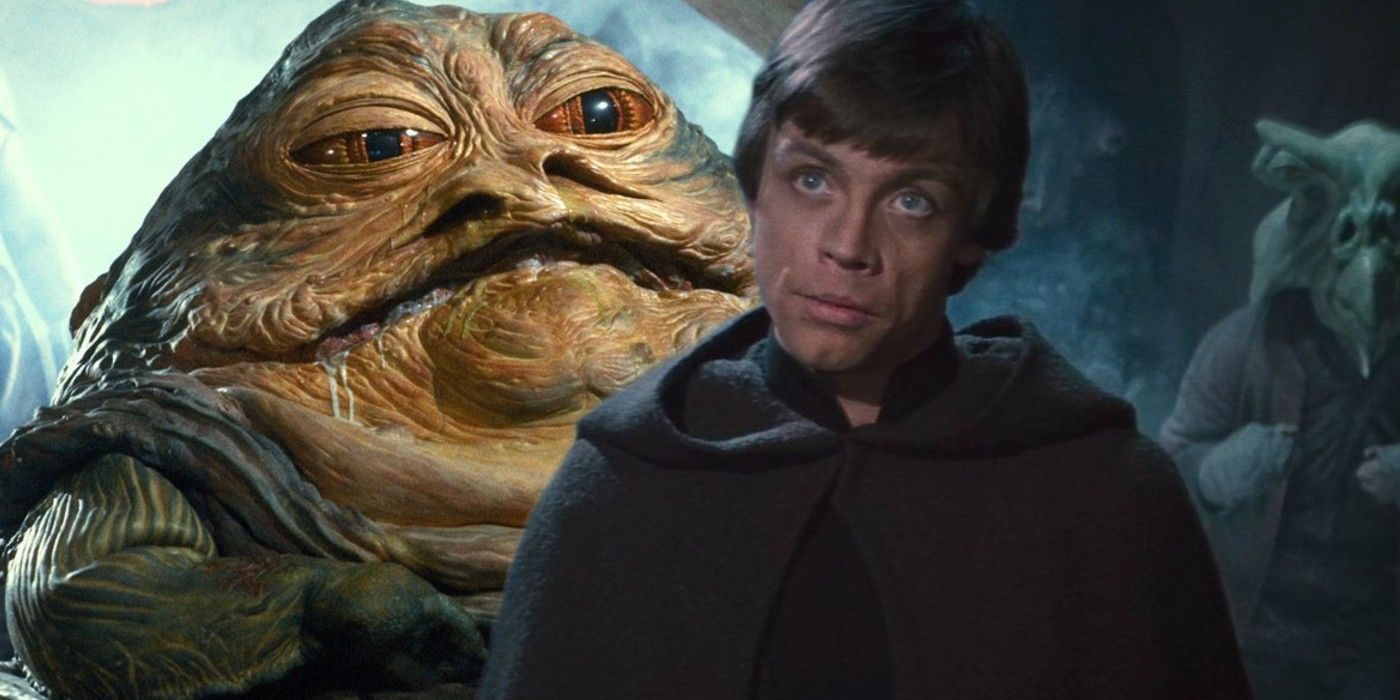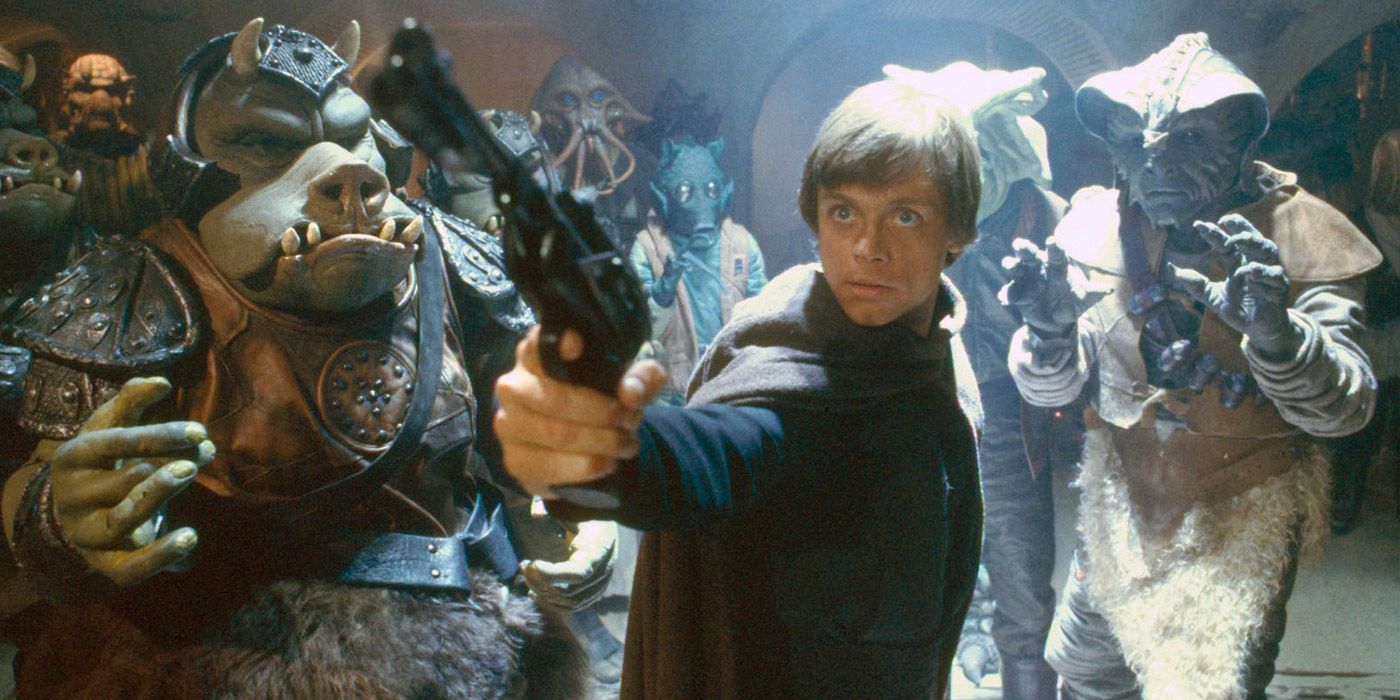Why Luke's Jedi Mind Trick Doesn't Work On Jabba | Screen Rant

Is there a reason Luke Skywalker's Jedi powers are totally useless against Jabba the Hutt, or is his immunity a Star Wars mystery? From the very beginning, 1977's Star Wars establishes what the Force can do to a susceptible mind. Obi-Wan Kenobi rides into Tatooine and immediately impresses with his ability to command enemies using nothing but a soft voice and a wave of the hand. He explains that the Force can influence the actions and decisions of others - incredibly useful for avoiding patrols or gaining access to exclusive parties. Luke Skywalker learns this fascinating power for himself during the gap between The Empire Strikes Back and Return of the Jedi, then strolls into Jabba's palace ready to give a demonstration.
Upon entering the Hutt's den, Luke effortlessly persuades Bib Fortuna to grant him an audience with Jabba - a classic example of Jedi trickery. When he tries using the same ploy to force Jabba into releasing Han Solo and Chewbacca, however, Luke's demands are met with a cold laugh and a "your mind powers will not work on me, boy." Unable to influence Jabba's big brain, Luke and his friends resort to a good, old-fashioned fight - but why didn't Luke's Force powers work in the first place?
While Star Wars has never provided a firm answer to this conundrum, there are two main theories, both quite different. The first (and more canon-friendly) hypothesis is that Jabba simply boasts too much cunning and intelligence to be fooled. Obi-Wan admits a Jedi can only trick the "weak-minded" and, as the ruler of a successful criminal empire, Jabba hardly falls into that category. This is supported by the moment Jabba admonishes Bib Fortuna as a "weak-minded fool" for succumbing to Luke's hand-waving malarkey, implying the Hutt himself is strong-willed enough to resist.

Jabba's brainpower is definitely a convincing explanation as to why Luke can't dupe him with Jedi mind tricks, but some fans reckon there's more going on. In The Phantom Menace, Qui-Gon Jinn encounters Watto, the owner of Anakin Skywalker and his mother. Liam Neeson's character tries psychically convincing Watto that Republic credits are an acceptable form of payment on Tatooine, but the Toydarian species possesses a biological resistance to Jedi manipulation. Naturally, some Star Wars fans have speculated that the Hutts might harbor this same trait. Star Wars Legends adds credence here, with Jedi Path and other pre-Disney releases revealing Hutts have some natural predisposition against being tricked by Jedi, just like Toydarians. Modern canon has made similar hints, but nothing concrete. In Star Wars: War of the Bounty Hunters #2, for example, Sly Moore calls the Hutts as a species "rather strong willed" after failing to mind-trick Jabba.
Perhaps the best answer for Jabba's Force-resistance is to say that Hutts are inherently difficult to manipulate through the Force, but Jabba's status as a master criminal makes him even harder to trick than the others. Strictly in terms of current Star Wars canon, however, there's very little definitive evidence to suggest the Hutts are biologically immune to the Force. Therefore, Luke Skywalker's inability to probe Jabba's mind must be primarily because his target isn't weak-minded enough to fall for the Jedi's ruse.
Blaming Jabba's anti-Force defenses on his own sparkling personality makes more sense than attributing the trait to biology alone. In The Phantom Menace, Watto's Toydarian biology works as an explanation because the character is a humble shopkeeper - the type of person Qui-Gon would usually expect to control without hassle. Since Jabba is a formidable Star Wars villain, it's fitting that his mental acuity be responsible for neutralizing Luke's magic voice, rather than attributing everything to good genes. Jabba also proves that Stormtroopers aren't exactly making up for terrible aim with their sharp minds...
from ScreenRant - Feed https://ift.tt/3kY4RCW
via Whole story

Post a Comment